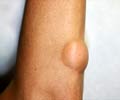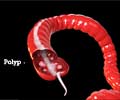Anti-inflammatory drugs commonly taken by children can cause alterations to dental enamel
- Children’s anti-inflammatory medications can cause changes to their teeth’ enamel
- NSAIDs like Celecoxib and Indomethacin can interfere with the development of the enamel and cause dental enamel abnormalities which are similar to the effect of tetracycline on developing teeth //
- An appropriate protocol needs to be developed to regulate these over-the-counter drugs to avoid such side effects among youngsters
Enamel biomineralization under the effects of indomethacin and celecoxib non-steroidal anti-inflammatory drugs
Go to source). The researchers studied the effects of celecoxib and indomethacin, two non-steroidal anti-inflammatory drugs (NSAIDs) defined by the World Health Organization (WHO) as the first steps on the analgesic ladder, alongside paracetamol.
Dental decay in the form of carious lesions arises earlier and more frequently in these patients as a result of this illness, and their restorations are less sticky and fail more frequently. According to studies, they may need to repair restorations ten times more frequently than people with healthy teeth.
Dental enamel defects (DED) are divided into two types: qualitative and quantitative. Qualitative defects are those that are defined by hypomineralization of the enamel, where it stays at normal thickness but with faulty enamel mineralization, as seen by diffuse or delimited white to yellow-brown opacities. Quantitative defects, on the other hand, are characterized by enamel hypoplasia, which is characterized by a decrease in enamel thickness (2✔ ✔Trusted Source
Prevalence and Diagnosis of Molar-Incisor-Hypomineralisation (MIH): A systematic review
Go to source).
The Effects of Celecoxib and Indomethacin on Tooth Development
The researchers were especially intrigued by a coincidence: the patients’ ages. The initial years of life, when DEDs occur, are characterized by recurrent sickness, typically with a high fever. “These diseases are typically treated with NSAIDs, which inhibit the activity of cyclooxygenase [COX, a key inflammatory enzyme] and reduce the production of prostaglandin [which also promotes inflammation],” said Francisco de Paula-Silva, the article’s last author and a professor in FORP-Pediatric USP’s Department. “However, because COX and prostaglandin are known to be physiological for dental enamel, we questioned if these medicines interfered with its regular synthesis.”The researchers studied the problem using rats, since these animals have incisors that grow continually, making analysis easier. After 28 days of celecoxib and indomethacin treatment, virtually no alterations in the rats’ teeth were discernible to the naked eye. When the researchers began extracting the teeth, they discovered that they cracked more easily.
Imaging and chemical composition analysis revealed that dental mineralization had been harmed. The teeth have low mineral density and low quantities of calcium and phosphate, both of which are necessary for the production of dental enamel.
“Right now, the study at least offers us a clue to the identity of a new player that may be involved in the development of DEDs. Hitherto we’ve been totally in the dark,” said Paula-Silva. “We only achieved these important findings thanks to the efforts of FORP-USP’s Dental Enamel Clinic and collaboration with Lúcia Helena Faccioli, a professor at FCFRP-USP. She made a significant contribution to our understanding of the role of lipidic mediators in inflammatory diseases of the teeth.”
Another crucial issue to address is the indiscriminate use of over-the-counter medications, which appears to have worsened as pediatric treatment has become more widespread, but precise data on this is lacking.
References:
- Enamel biomineralization under the effects of indomethacin and celecoxib non-steroidal anti-inflammatory drugs - (https://www.nature.com/articles/s41598-022-19583-w)
- Prevalence and Diagnosis of Molar-Incisor-Hypomineralisation (MIH): A systematic review - (https://link.springer.com/article/10.1007/BF03262714)
Source-Medindia












